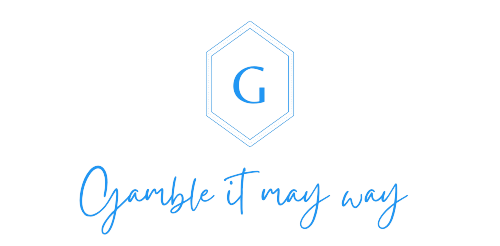
Table of Contents
ToggleIntroduction
In an era where capitalism often takes the blame for environmental degradation and social inequality, there stands a shining example of a company that has harnessed the power of capitalism to make a positive impact on the planet. Patagonia, a well-known outdoor apparel and gear company, has been a trailblazer in demonstrating that businesses can do well by doing good. Their latest initiative, the Holdfast Collective, represents a bold and innovative approach to saving the planet. In this article, we will explore how Patagonia’s Holdfast Collective is leading the way in sustainable capitalism.
Patagonia: A Pioneer in Ethical Business
Before delving into the Holdfast Collective, it’s essential to understand the values and history that have shaped Patagonia into a pioneer of ethical business practices. Founded in 1973 by Yvon Chouinard, Patagonia has consistently prioritized environmental and social responsibility over profits. Their mission statement, “We’re in business to save our home planet,” encapsulates their commitment to using their business as a force for good.
The Environmental Commitment
Patagonia’s environmental commitment goes beyond catchy slogans. They have taken significant steps to reduce their carbon footprint, such as using recycled materials in their products, minimizing water usage, and sourcing sustainable materials. In 2011, they became one of the first companies to become a certified B Corporation, which legally requires them to consider the impact of their decisions on workers, customers, suppliers, communities, and the environment.
Activism and Advocacy
Patagonia’s activism and advocacy efforts are equally impressive. They have used their brand and resources to support environmental causes, including donating millions to grassroots environmental organizations and launching campaigns like “Don’t Buy This Jacket” to encourage responsible consumption. Patagonia’s commitment to activism demonstrates that they are not just a company that talks the talk; they walk the walk.
The Birth of the Holdfast Collective
In 2020, Patagonia announced the formation of the Holdfast Collective, a new initiative aimed at transforming the apparel industry from within. This ambitious project marked a significant milestone in Patagonia’s ongoing commitment to sustainability and social responsibility. The Holdfast Collective seeks to address some of the most pressing challenges facing the fashion industry today.
Ethical Supply Chain
One of the most critical aspects of the Holdfast Collective is its focus on creating an ethical and transparent supply chain. The fashion industry is notorious for its exploitation of labor in developing countries, and Patagonia aims to change this narrative. They are partnering with suppliers and factories that share their values, ensuring fair wages and safe working conditions for workers.
Regenerative Agriculture
The Holdfast Collective recognizes the critical role of agriculture in climate change and biodiversity loss. Patagonia is working to promote regenerative farming practices that help sequester carbon, improve soil health, and promote biodiversity. By supporting farmers who adopt these practices, Patagonia is contributing to a more sustainable food system.
Circular Economy
Patagonia has always been a proponent of the circular economy, where products are designed to last and can be easily repaired, reused, or recycled. The Holdfast Collective continues this commitment by developing innovative ways to extend the life of their products and reduce waste.
Advocacy and Collaboration
The Holdfast Collective doesn’t limit its efforts to Patagonia alone. It actively collaborates with other companies, NGOs, and government bodies to drive systemic change in the fashion industry. By advocating for policy reforms and industry-wide sustainability standards, Patagonia is leveraging its influence to benefit the planet and its inhabitants.
Positive Impact and Challenges
The Holdfast Collective has already made significant strides in the pursuit of a more sustainable and equitable future. However, it also faces its share of challenges.
Positive Impact:
- Employee Engagement: Patagonia’s commitment to ethical practices has led to increased employee satisfaction and retention. Their workforce is more motivated, knowing they work for a company with a higher purpose.
- Consumer Loyalty: Patagonia’s loyal customer base appreciates its dedication to sustainability and ethics, resulting in increased brand loyalty and advocacy.
- Industry Influence: Patagonia’s size and reputation in the fashion industry mean that its efforts have the potential to inspire other companies to follow suit.
Challenges:
- Costs: Implementing ethical and sustainable practices can be more expensive initially, potentially impacting profit margins.
- Industry Resistance: The fashion industry, as a whole, is resistant to change due to its reliance on low-cost labor and fast fashion. Convincing other companies to adopt Patagonia’s model remains a challenge.
- Scale: Patagonia, despite its success, is still a relatively small player in the global fashion industry. To drive significant change, they need to scale their efforts and influence.
Also Read: THE NUTRITIONAL POWERHOUSE: EXPLORING THE HEALTH BENEFITS OF NANCE-FRUIT
Conclusion
Patagonia’s Holdfast Collective stands as a testament to the idea that capitalism can be a force for good. By prioritizing environmental and social responsibility, Patagonia has not only built a successful business but also become a beacon of hope in a world grappling with climate change and inequality. Through its commitment to ethical supply chains, regenerative agriculture, the circular economy, and collaboration with others, the Holdfast Collective is leading the way in transforming the fashion industry.
